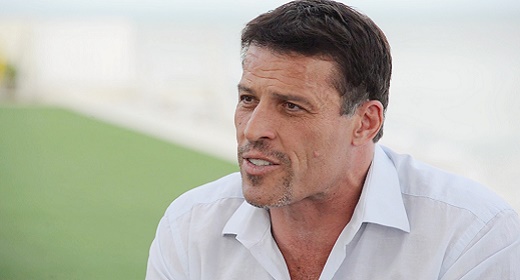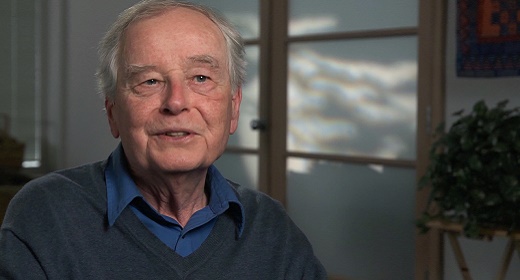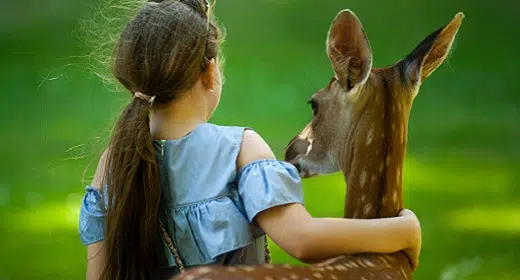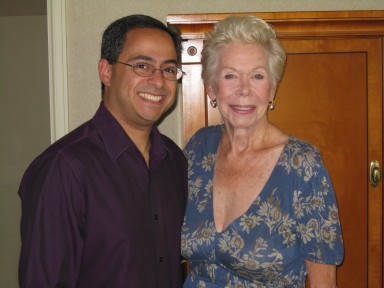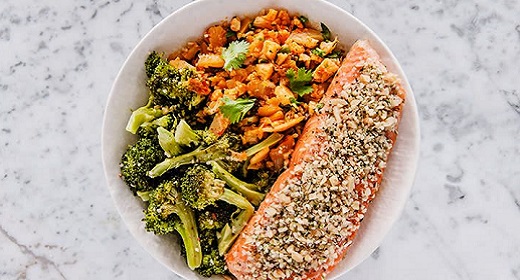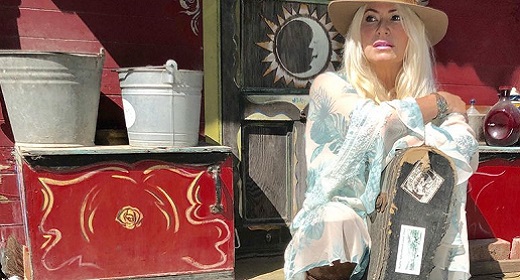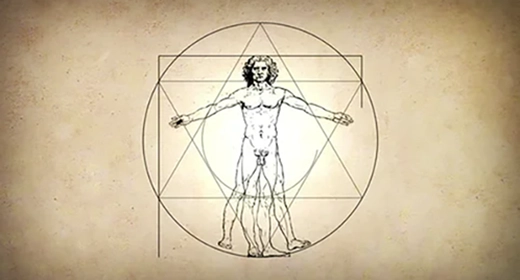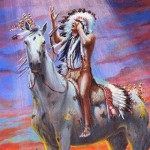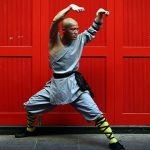by Ray Hemachandra: Here are extended excerpts from the article “Life Loves You! An Interview with Louise Hay,”…
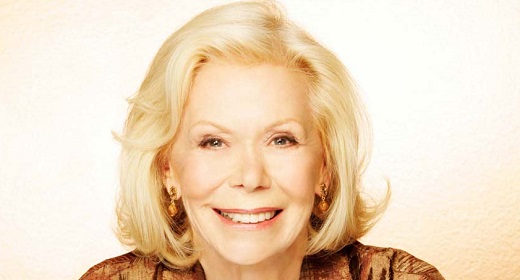
Louise’s message at this stage of her life was simple and powerful: Everything you say, write, and think are affirmations, so use words that affirm your well-being instead of undermine it. Life is good, and life loves you. Aligning with this reality will ease your pain — physical and emotional — and heal your life. You can visit http://www.louisehay.com to learn more about this vital, vibrant, and foundational mind/body/spirit teacher, who died in 2017 on August 30, which happens to be my birthday, at age 90. ~ Ray
Ray Hemachandra: You’re in your eighties, Louise. What do you say to people who are in midlife and fearing the aging process?
Louise Hay: We’re all — all of us — a minute away from dying. It could even possibly be that none of us will get out of this room alive. If you’re aware of that, life becomes a little more precious. Also, you have a slightly different outlook. It’s not so much “gimme, gimme.”
We’re all going to leave at some point. We’re living longer now, but we’re not always living better. You’ve got the junk food that’s been destroying our bodies for years now. Then you have the pharmaceutical companies desperately trying to keep us alive from the junk food that we’ve been eating, and their drugs are also ruining our bodies.
We have to come back to basics: learning how to take care of ourselves. Not only learning to love our bodies — and that’s a good beginning — but to take care of our bodies and ourselves by learning how to eat and how to think.
I think living is really about thoughts and food, and we’ve got to get back to basics.
People are starting to grow little vegetable gardens. It’s happening because they don’t have the money to pay for the food that’s so overpriced right now. It’s a start. Once somebody grows some food and finds out what it tastes like, they’ll want to grow more.
Ray: What are your beliefs about death, Louise?
Louise: Oh, I’m not frightened of it at all. I watched a friend of mine leave in the past few months, and it made me think about how I would go in the same circumstances.
Here was a person who had helped many people die. He was always loving, kind, and sweet, with all the right words to say. But when it came to his own death, he was a bloody pain in the ass to everybody around him.
He was whining and demanding and wouldn’t acknowledge what was happening. He was so good with everybody else, and then he couldn’t do it for himself.
He went out in fear — with a lot of fear and unhappiness — and he made everybody around him unhappy. I just thought, “I don’t want to do that.”
Ray: Why do you think that was? Was it that his own fearful beliefs about death deep inside came out?
Louise: I think so. I think his childhood stuff came up.
Ray: Are we ever done with this work, until we’re done with life?
Louise: No. But I think leaving can be as joyous as — probably more joyous than — being born, because being born is very physically uncomfortable for the baby.
Ray: What are you most joyous about these days?
Louise: Life! Honey, listen: In two days, I’ll be 82, and I’m saying, what’s new? What’s going to happen to me and what’s going to come to me that will be new?
…
Ray: Why did you start doing work with people with AIDS and the gay community?
Louise: (Sighs, and laughs heartily.) Life sort of put its hand in front of me and said, “What about if you handled this?” When AIDS first started spreading, no one knew anything about anything about it. But I had worked with gay men for some time, mostly in New York. I had a small group there, and it grew. When I came out to California, I tried to start another group, and I couldn’t get it together. It just wasn’t right.
Then one day, as AIDS started its journey, somebody called me up and said, “Louise, can you help? We need a group for people with AIDS.” I said yes, but I didn’t know if it would work.
Six guys came to my living room that night. I remember we gave them dinner, and I said, “I don’t know what we’re doing. Nobody knows what they’re doing now. It’s all unchartered waters. But we’re not going to sit here and play Ain’t It Awful. We’re going to take a positive approach, and we’re going to see what happens. We’re going to do the same thing I’ve always done with people: We’re going to release resentment. We’re going to forgive. We’re going to learn to love ourselves.”
We talked for some while. At the end of the evening we sang a song and did a little meditation, and then they went home.
The next morning, I had a call from one of the guys. He said, “Louise, it’s the first time I’ve slept in three months.” So, the next week we had fifteen men come. We just did that over and over again, until in three months I had ninety people in my living room, and my living room could only hold about sixteen.
We got a gymnasium in West Hollywood to give us some space, and in one week we went from ninety people to one hundred and fifty. It just kept going like that, and then we outgrew the gym! Finally, the city of West Hollywood gave us some space to hold meetings. It became known as the Hayride. People would call each other up, “Are you going to the Hayride tonight?”
I call it six and a half years in the trenches. Nobody knew what they were doing, and basically nobody was doing anything for anybody. They wouldn’t touch people with AIDS.
Ray: There was so much fear then.
Louise: Oh, yes, it was terrible, and you had these frightened little boys. They were so young. So, I didn’t say no, and it just grew by itself.
Ray: And you were in your mid to late forties?
Louise: No, sweetheart, fifties. I didn’t start until fifty. I didn’t begin anything until fifty. This has been thirty years now.
Ray: Well, it’s been thirty years, and your popularity is booming. Why are you finding so many new fans — or, rather, why are they finding you now, after thirty years of your doing this work?
Louise: I think these things grow. The more people know, the more people share. The more people improve the quality of their lives, the more they’ll talk to other people about it, and then they’ll help each other. I don’t think I have anything to do with it. The work itself snowballs.
It’s so necessary around the planet. Really, we’re a mess at the moment. But we will work it through.
…
Ray: Do you think there is still resistance to the idea of powerful women? And, in that context even still today, how can women best empower themselves?
Louise: Love who they are, and don’t listen to the bullshit.
I’m in a kick right now where I’m trying to get everyone to say to themselves, “Life loves me!” When we can get that inside of ourselves, everything becomes a lot easier.
Then, every time something nice happens, we see it and acknowledge it: Yes! Life loves me! See, there’s proof!
We have to believe in ourselves more. It’s all the same thing: We need to release the guilt. We need to forgive. We need to drop all that bullshit we were taught.
A lot of it was taught by people who loved us. Some of us had rotten parents, and some of us had fabulous parents. They really wanted us to be safe, so they gave us their rules. Their rules probably didn’t work for them, either. But we were good little children — good little girls and boys — so we learned what our parents taught us.
Ray: It seems to me “Life loves me” is a wonderful complement to what you’ve always said — “Life is good” — and that it’s different, too. “Life is good” is what you say about the goodness in the universe, while “Life loves me” is really saying the universe sees and adores the goodness in you. So, it really brings this work around and makes it whole and complete.
Louise: Yes, I think we need to get that. I’m a simple person, and I have simple ideas. People could say, “Oh, what do you mean life loves you?” But if you believe it, you will have proof. It’s amazing how many incredible things are happening for me.
Ray: You say life is good. What makes life good for you?
Louise: Everything’s working. Everything’s nice. Life is becoming easier. I had a quiet period there for a while. It was not a bad thing at all — it was great. I loved it. But life has obviously said, “You’re going out again now.” And here I am.
Reid (Reid Tracy of Hay House) said something the other day and I heard it: “I want her working when she’s 100!” (Laughs.)
And I thought, why not? If the work is interesting and good, and I feel great, why not? It would be incredible.
Ray: It’s interesting, though: As you decide what your life looks like in your eighties, then in your nineties, and then in your hundreds, you supposedly were retiring way back in 2004 and making your last public appearances. The “Why not?” question makes a certain amount of sense, but it seems to me you, of all people, are instead very proactively answering the “Why?” question — and deciding exactly what you want your life to look like.
Louise: Yes, that’s true, but it’s moment to moment. I don’t look ahead. I don’t plan.
If you ask me what I did yesterday, I have to say, “Let me look at the book.” Because it’s gone. And if you ask me what I’m doing tomorrow, I say, “Let me look at the book,” because I don’t know what I’m doing tomorrow.
If you’re asking about two months from now, there may be one or two things planned, but all the other things that will happen between now and then — I haven’t a clue. I’ll find out when they happen.
…
Ray: Louise, a lot of manifestation and affirmation work today focuses on material wealth.
Louise: Oh, I know, and it’s so stupid. With today’s economy, we’re proving all that shop-till-you-drop bullshit doesn’t work.
Ray: But it does seem that people are drawn to doing affirmation work oriented toward gaining material things, maybe out of a sense of lack or need. The Secret emphasized it, for example.
Louise: Oh, yes, I know. That’s the terrible thing about The Secret. But the good thing is that it opened the eyes of many people to the possibilities. Now, a lot of those people are very dissatisfied, because they’re not getting the things they thought they were going to get. They don’t realize that you’ve got to clean up some of the crap inside first.
Many people think that things will make them feel better. Things never do.
They have a very short-lived period of making you feel better, depending on what it is. With a car, you might get a week, but usually not any more than that! (Laughs.)
…
Ray: Who is the first person you felt love from?
Louise: Well, there was some love from my mother. I know that. No protection, but there was love. That’s an interesting combination. So, I’d say my mother, but there wasn’t a lot of love for me for a long time.
I also didn’t realize the difference between love and sex for a long time. An arm around you felt like what must be love, but that isn’t necessarily love at all.
Ray: What’s your definition of love?
Louise: Acceptance — accepting people as they are. Just acceptance and caring.
Ray: The long history of relationships between men and women, in this country and really around the world, has involved so much misogyny and domination, rather than partnership and equality. What’s caused this dynamic, and how can we heal it individually and collectively?
Louise: I think that’s all cultural stuff. It’s society and culture. If your ancestors and your parents and everyone you know is doing the same thing, it seems right — even when it’s already not right for some people. The culture has to change.
Ray: What do you think it is that lets a woman break out of the box of expectations society puts her in and reach success, even though a lot of discriminatory biases continue to exist today?
Louise: When I look at myself, I don’t know how I did it. I really don’t. One thing sort of happened after another. And now I’m at a point where I’d never accept things that I thought were normal and natural for many years.
What a lot of people don’t understand is that when you change your thinking — when you accept different concepts — then life mirrors those for you.
If you can get the concept that you’re worthy and loveable and that you deserve to have a better life, life starts bringing those opportunities to you, because that’s your belief system. So, even though it may seem insane if you’re in a really bad spot, I think you really can make tremendous changes by working inside yourself.
But, you see, what you need to do to make your changes and what I need to do to make mine are different. It’s not that the process isn’t the same, but you have your thoughts and I have mine.
We all have our own stuff that we need to release, let go, and overcome so that we can be everything that we are.
Ray: It seems to me gratitude is playing a larger role in your work these days. Am I right?
Louise: Oh, yes. Life loves gratitude. It adores people who are grateful. The more grateful you are, the more goodies you get. I don’t mean just things. I mean all the nice qualities of life that you can have.
It’s like if I give you a present, and you go, “Oh, well, I don’t like that color,” or “Er, um, I think maybe it’s the wrong size” — it’ll be a long time before I want to give you another present. But if you go, “Oh! I love it! It’s wonderful! It’s so gorgeous!” every time I see something that I think you’ll like, I’ll think about getting it for you, whether I do or not.
That’s the way life works, too. Gratitude and appreciation just bring more goodness. Remember: Everything we give out comes back. Gratitude has all sorts of little, surprising rewards.



